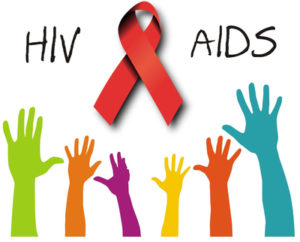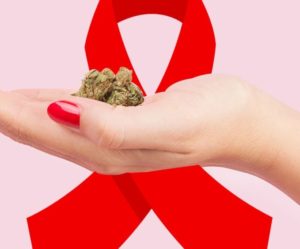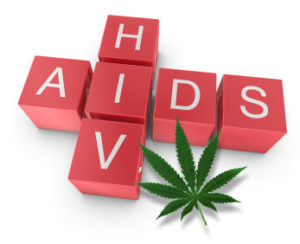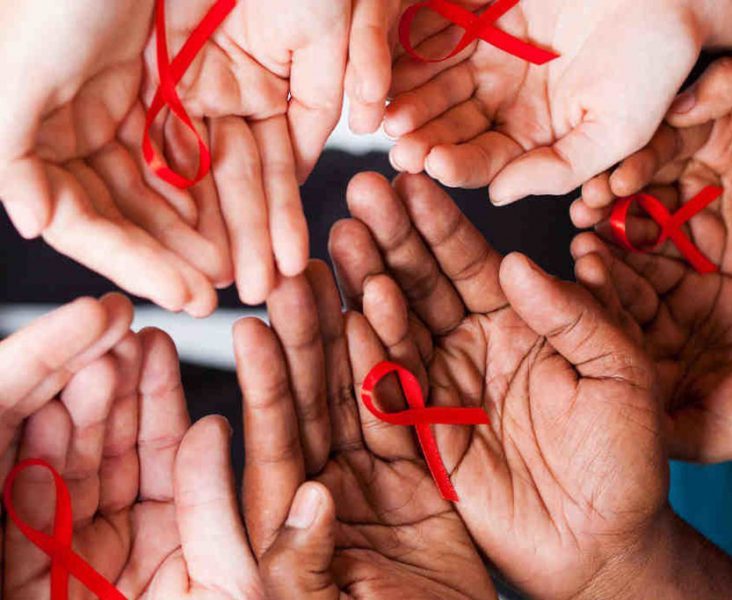What Is HIV-AIDS?

HIV, aka the Human Immunodeficiency Virus, is a sexually transmitted disease that impairs the immune system. As a result, those infected with it are vulnerable to opportunistic infections. AIDS, or Acquired Immune Deficiency Syndrome, refers to the immune system’s breakdown caused by the HIV virus.
The virus is bloodborne, primarily transmitted by exchanging bodily fluids like blood and semen via unprotected sex, as well as contaminated blood transfusions, in utero, or infected mothers’ breast milk. It can’t be transmitted through casual contact.
It attacks the body’s white blood cells, which protect against infections, fungal growths, and malignancies. Consequently, HIV impairs the immune system, leaving the body open to opportunistic infections and cancers.
Currently there’s no cure, though antiviral drugs have helped many manage their condition for decades. With proper treatment, a person with HIV-AIDS can often expect to live a nearly normal lifespan, so long they adhere to their medications.
Conventional Treatments

Antiretroviral drugs have transformed HIV-AIDS from a death sentence to a manageable condition. The FDA has approved six classes of drugs and more than 25 medications to keep the HIV virus from multiplying and impairing the immune system.
Typically patients are treated with a combination of drugs suited to their needs and must adhere to a strict daily treatment regimen. However, these medications come with severely debilitating side effects, causing many to discontinue their life-saving medications.
Megestrol acetate, commonly prescribed to battle AIDS weight loss, can prompt seizures, heart failure, seizures, pneumonia, nausea, vomiting, constipation, impotence, vaginal bleeding and more.
Opioids like codeine, morphine, and oxycodone are typically prescribed to fight polyneuropathy that comes with HIV-AIDS. Yet they’re often overprescribed and can result in severe addiction, mood change, and even death–which are rising at a staggering rate amid the current opioid epidemic.
Somatropin, a synthetic human growth hormone, is used to combat AIDS wasting syndrome–though may induce stomach, face, hands and feet swelling, cancer, diarrhea, headaches and high blood pressure.
Arrive — cannabis.
Is Cannabis Use Safe for HIV-AIDS?

Cannabis’ side effects, on the other hand, are much less addictive, non-lethal, and mild–even with the sickest of patients. Although it can hinder performance, resulting in temporary impairment, it has little effect on physiological functions.
Inhaling cannabis smoke can harm the respiratory system, though serious complications from it are rare. If it causes discomfort, vaping is a cleaner alternative.
Medical Marijuana and HIV-AIDS

Cannabis’ effectiveness in treating symptoms related to HIV-AIDS is widely recognized. Its value as an antiemetic and analgesic has been proven in numerous studies and has been recognized by several comprehensive, government-sponsored reviews.
AIDS wasting syndrome was a frequent complication of HIV infection prior to the advent of protease-inhibitor drugs. It’s been associated with major weight loss and cachexia, conditions that further debilitate its victims who’re already weakened by immune system failure and opportunistic infections.
Cannabis has been a frequently employed alternative medicine for the condition, particularly in the U.S., because of its reported benefits on appetite and improvement of other AIDS symptoms.
HIV-AIDS patients have known this, self-medicating with cannabis to tolerate their condition and its resulting effects. It’s been effective in reducing nausea, neurological pain and anxiety, as well as stimulating appetite. In fact, the prognosis improves threefold for HIV-AIDS patients who use cannabis as an adjunct therapy to their conventional medications.
The medical community has taken an interest as well, and research into marijuana’s pain-relieving, mood-elevating, and appetite stimulating properties gained momentum. Before long, a consensus soon emerged–marijuana was safe and effective in addressing the debilitating symptoms HIV-AIDS patients dealt with on a daily basis.
The evidence for marijuana’s efficacy as an adjunct therapy turned out to be so overwhelming that the federal government was effectively pressured into approving Marinol, a synthetic version of medical cannabis.
Unfortunately, Marinol has never been as well-tolerated or as popular as marijuana when it comes to symptom relief. That’s because individually isolated cannabinoids (Marinol is just THC) have been shown to have less positive health benefits than when consuming cannabinoids in concert. Namely, THC and CBD together, which has come to be known as the “entourage effect.”
Sympathy for HIV-AIDS patients and the steady accumulation of scientific evidence supporting cannabis’ painkilling benefits proved to be a watershed moment in tipping public opinion in favor of MMJ. More recently, a few studies have suggested that cannabinoids may also have antiviral properties.
A Summary of the Scientific Studies
HIV-AIDS was among the first conditions that medical marijuana was widely used for in the United States.
Initially, some researchers worried heavy cannabis use could further impair white blood cell counts and immune functioning in patients. However, a majority of studies appear to confirm that medical cannabis is safe, well-tolerated by patients, and an effective pain reliever.
More recently, researchers are beginning to investigate medical marijuana’s potential antiviral properties. Here is a summary of important findings:
- A clinical trial conducted in 2003 found no evidence that either smoked marijuana or oral cannabis undermined immune function in HIV-AIDS patients.
- In 2005, research published in the Journal of Pain Symptom Management concluded that cannabis helped HIV-AIDS patients improve symptom control.
- A 2005 study published in Psychopharmacology found that marijuana was an effective appetite stimulant for patients suffering from the wasting effects of HIV-AIDS.
- According to a 2007 report, up to 33% of HIV-AIDS patients self-medicate with cannabis to help alleviate nausea, vomiting, depression, weight loss and other side effects caused by their treatments. Some studies suggest that cannabis use is correlated with improved adherence to antiretroviral regimens.
- A study published in 2012 found that cannabinoids have the potential to “exert potent antiviral activity without inducing immunosuppression.”
- A 2013 Harvard study found that cannabinoids may help prevent the HIV virus from damaging the brain.
- At least one study suggests MMJ may help inhibit the progression of the HIV virus itself. However, researchers caution that cannabis should be considered a complementary therapy, not a replacement for proven treatments.
Medical Marijuana Products to Treat HIV-AIDS
Health providers tailor drug therapies to match the unique needs of individual HIV-AIDS patients.
Similarly, there’s no one marijuana strain or cannabis-based product that’s appropriate for all HIV-AIDS patients.
With a condition as serious as HIV-AIDS, it’s especially important to discuss all MMJ treatment options with a licensed physician first.
Interesting HIV-AIDS Facts
- Roughly 37 million people have HIV-AIDS worldwide.
- Globally, 1.8 million children have HIV-AIDS.
- Worldwide, 40% of those living with HIV-AIDS are undiagnosed.
- 1.2 million Americans are living with HIV-AIDS according to the U.S. Department of Health.
- One in eight people infected with HIV-AIDS in the U.S. are unaware of their condition.
- HIV-AIDS is most prevalent in sub-Saharan Africa where the World Health Organization estimates that one-third of the population is infected.
Doctor Testimonials
“From working with AIDS and cancer patients, I repeatedly saw how marijuana could ameliorate a patient’s debilitating fatigue, restore appetite, diminish pain, remedy nausea, cure vomiting and curtail down-to-the-bone weight loss.” — Dr. Kate Scannell
“When appropriately prescribed and monitored, marijuana/cannabis can provide immeasurable benefits for the health and well-being of our patients.” — The American Academy of HIV Medicine
“[Medical marijuana] stimulates the appetite and promotes weight gain, in turn strengthening the body, combating chronic fatigue, and providing the stamina and physical well-being necessary to endure or withstand both adverse side effects of ongoing treatment and other opportunistic infections.” — Dr. Marcus A. Conant
Patient Testimonials
“Wasting syndrome, in combination with other HIV-related symptoms and conditions, left me thoroughly disabled and desperate to obtain relief. I tried smoking marijuana to combat nausea. I found that it reduced my nausea and restored my appetite, allowing me to eat and regain my strength with no noticeable side effects…nothing compares to marijuana in terms of results.” — Daniel J. Kane
“I am a retired Air Force Captain and JAG Corps prosecutor, a former foot soldier in the war on drugs…I am also an AIDS patient who credits medical marijuana as an important link to saving my life…I found that it took only two or three puffs from a marijuana cigarette for my appetite to return.” — Keith Vines
“Medical marijuana was originally recommended to treat my nausea and chronic pain and has proven to be more effective than any of the numerous other treatments I have tried. It is effective without the debilitating grogginess, nausea and lethargy I experienced with other prescribed pain medications. Marijuana also acts as an appetite stimulant, helping me eat enough to avoid ‘wasting.’” — Michael Chelosky
Nugg is the "GrubHub for marijuana." Our site lets medical marijuana patients order online from dispensaries that deliver to them. Signup with the code BLOG20 for a $20 credit on your first order!






1 Comment
sheila ALESSIO
Do you know of an organization that helps with the cost of medical marijuana for Aids and HIV patients…..it can be expensive and having HIV I know all to well the expense….Some of us truly need some help